The cost of wasted energy can be curbed with the use of smart thermostats. These thermostats are often paired with various kinds of heat sources to achieve this. But do heat pumps work with smart thermostats?
Heat pumps are compatible with smart thermostats. Smart thermostats ensure that there is sufficient heating/cooling within the property at all times. They also serve as a switch between the heating systems when the main heating system fails.
The features of these smart thermostats help to ensure your heating needs are all year round. The use of these smart thermostats also presents various benefits which would be discussed later in detail.
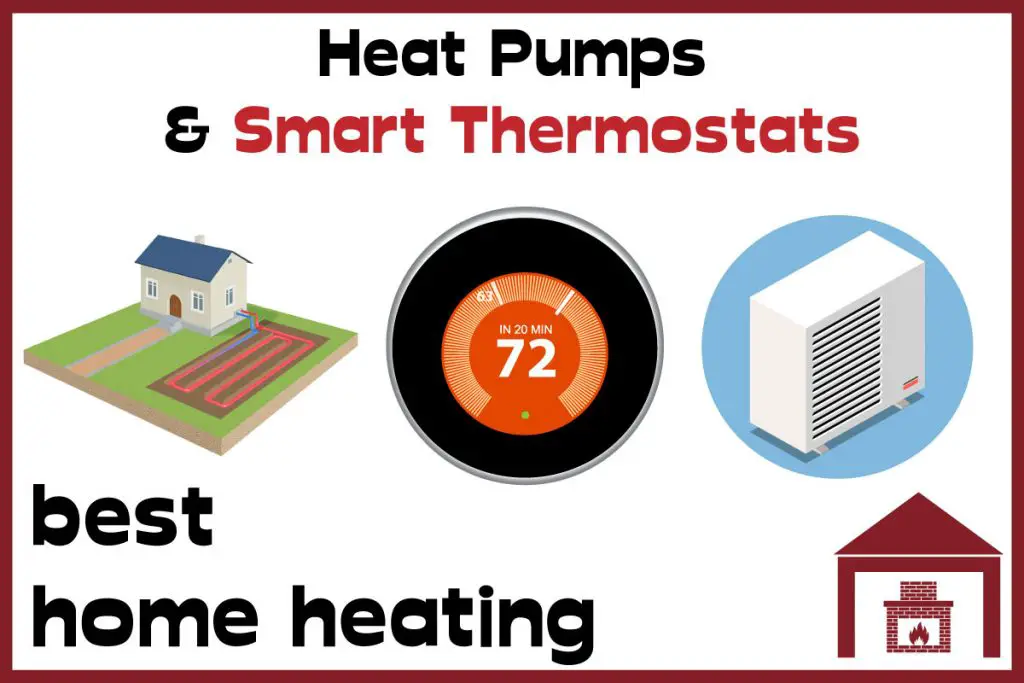
How do Smart Thermostats work?
Digital thermostats control the circuit using a thermometer that shuts down the boiler when the desired temperature is reached. Smart thermostats allow you to remotely control your boiler. In addition to a wired connection to your boiler, smart thermostats also connect to your home’s Wi-Fi network. You don’t need to buy a new boiler with embedded Wi-Fi to make your old boiler part of the smart home.
The boiler needs to be compatible with the smart thermostat, however. Your thermostat receives instructions from your Wi-Fi router. Smart thermostats automatically adjust the temperature and send a signal to your boiler to turn it on or off according to the set temperature.
Smart thermostats and Heat pumps
Like other central heating systems, heat pumps work with smart thermostats in the same manner. The only difference is the way they are connected. Most heat pumps are compatible with certain smart thermostats. You should check the compatibility of these heat pumps with the smart thermostat you want to pair them up with.
This compatibility is usually down to the wiring in the homes. The presence of a C-wire in the heat pumps, an extra wire that connects to an auxiliary heat system. So before installing, these are things that would need to be put under consideration. A smart thermostat that does not feature these wiring outlets would pose a problem to the overall installation.
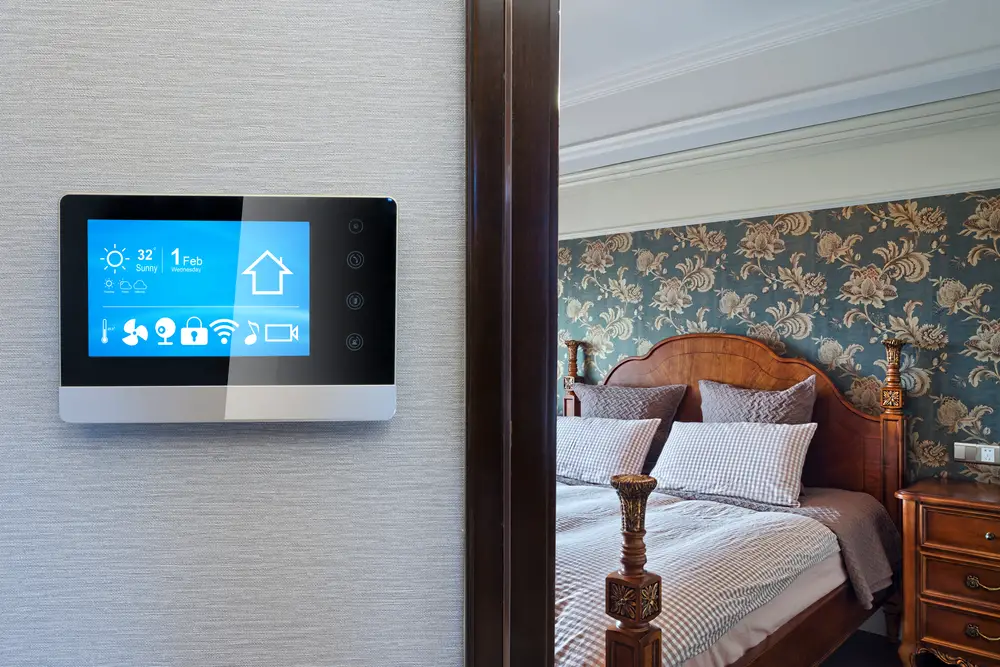
What are the advantages and disadvantages of using a smart thermostat with a ground source heat pump system?
The advantages of smart thermostats are as follows:
Energy Savings
Smart thermostats know when to turn on and off, which helps with savings. This is because the heat pumps would only come on when they are needed. This leads to lower energy consumption Smart thermostats regulate the temperature based on how much you use them. This avoids your heat pump mechanism from being overworked. As a result, you will save a significant amount of money on your energy bills.
Environmentally Friendly
Smart thermostats also contribute to an environmentally friendly home energy setup. They don’t waste energy because they can estimate when your heat pump will be needed. As a consequence, you’ll use less energy to maintain your home’s temperature.
Climate change and the greenhouse effect are exacerbated by energy output. Due to this, conserving energy reduces your carbon footprint and the environmental damage you inflict.
Keeps track of energy usage
On the display of a smart thermostat, you can see how much energy your home is using to manage the temperature. This allows you to keep track of how much energy your home consumes. Staying on top of your energy usage gives you the information you need to plan better. Additionally, you can avoid any unexpectedly large energy expenses.
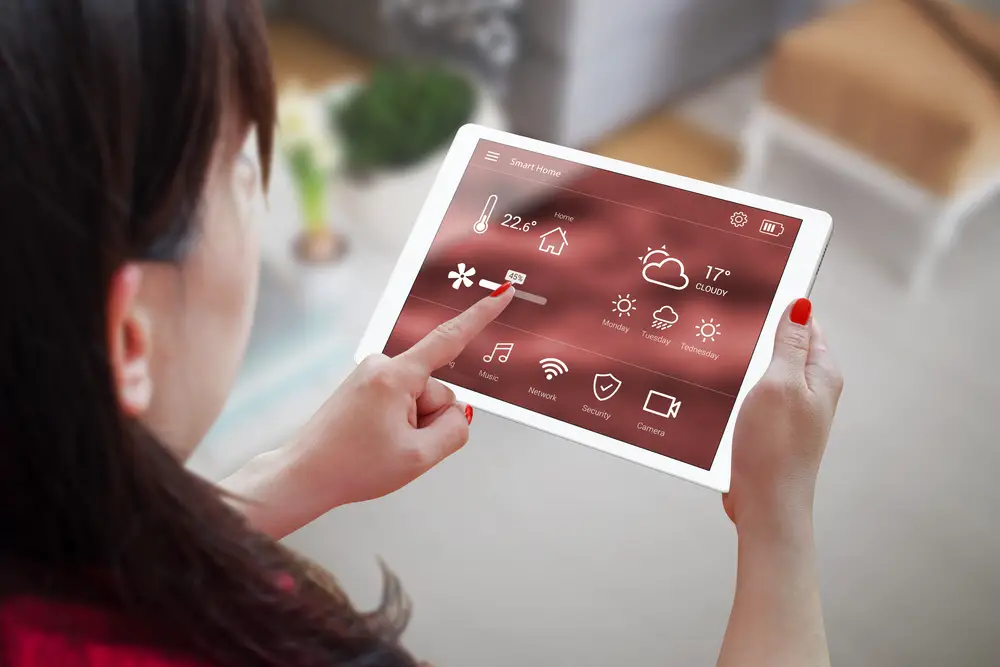
Convenient to use
It takes a few weeks for smart thermostats to learn your routine for altering the temperature in your home. You won’t have to bother about setting the temperature in your home after the thermostat has learned your patterns. You won’t have to raise a finger to control the temperature with your smart thermostat, it’s that convenient.
This feature is available on most smart thermostats as long you download their mobile apps(Nest, Ecobee). As a result, you may change the temperature of your home from the comfort of your bed or even at work.
Regardless of the advantages of smart thermostats, they also have underlying disadvantages:
- Installation could be difficult: For a regular person, installation could be a hassle, as certain thermostats require a C-wire which certain old houses do not have. The technician would have to install a C-wire adapter, or include a C-wire from the junction box for the whole house.
- Incompatibility issues: Before buying a smart thermostat, one would have to check for its operating voltages. Most smart thermostats have an operating voltage of 20-30v, which would make them incompatible with homes that have a 110 or 220v source voltage.
- Expensive: Smart thermostats are quite expensive, with a high cost of installation. In cases whereby one may need to buy more than one, it could be an uphill task. Although they eventually pay for themselves in the long run.
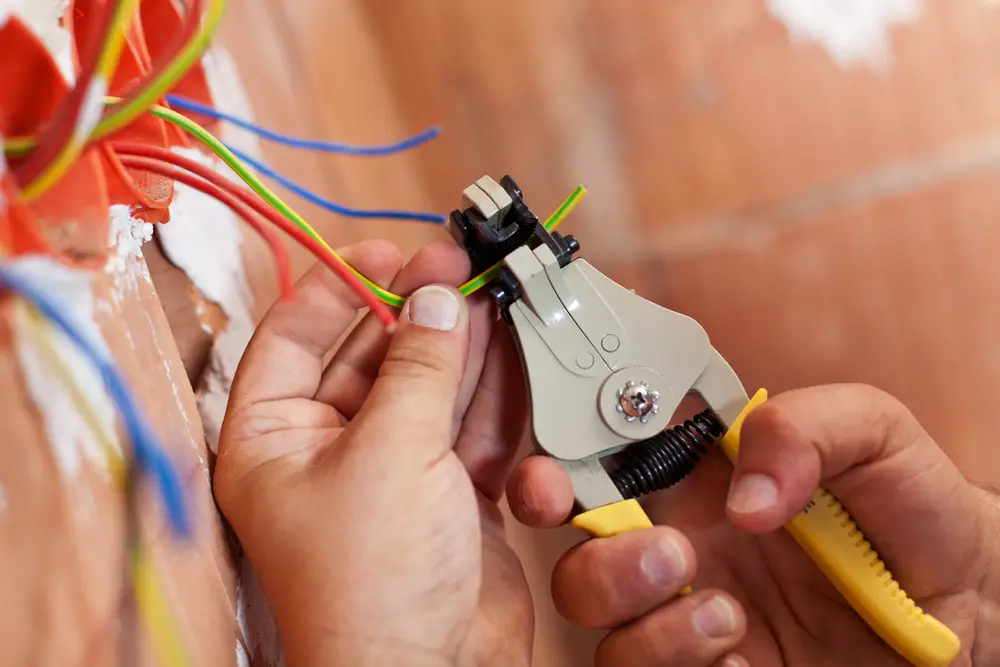
Are Smart thermostats needed for Geothermal heat pumps?
Ground source heat pumps have been tagged as the type of heat system that is to be installed and forgotten. This is because the whole idea behind a geothermal heat pump is that the perfect sizing of loops will be installed on a property based on the heating requirements, and will supply a constant temperature all year round.
Since they present a constant supply of temperature all year round, they may not require a smart thermostat. Another reason for this is that, when you switch on a geothermal system, the time it takes to switch on takes more time again. Boilers on the other hand are the systems that warrant constant tweaking depending on the temperature output. Hence, the need for them.
To get the best out of your geothermal system, it would be better to connect them to your heat distribution outlet. This may be through an underground heating system or radiators.
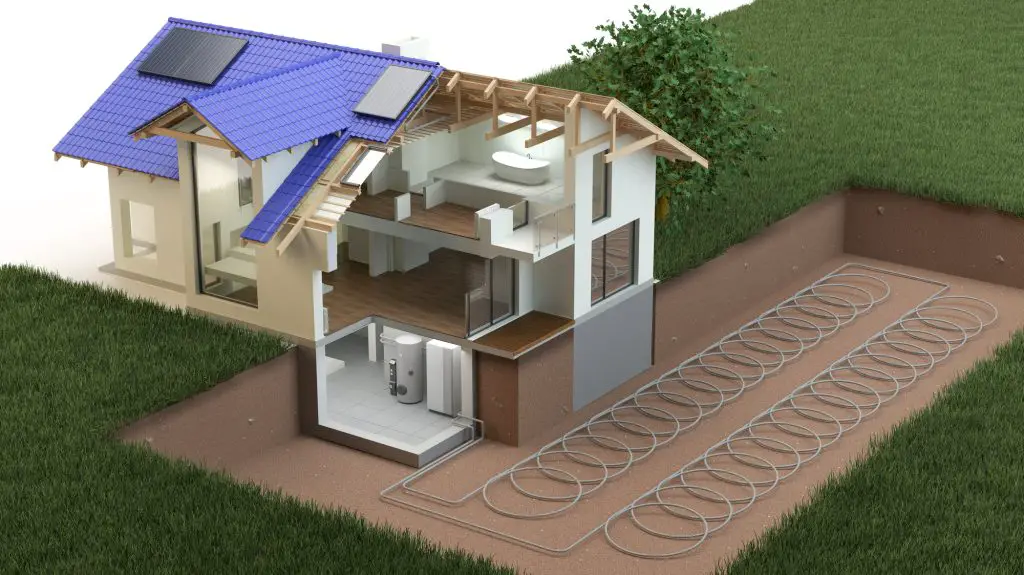
How do smart thermostats work with Air source heat pumps?
This system works with air source heat pumps in the same manner as ground source heat pumps. This system is connected to the heat pump to help schedule on and off times for the heat source. The wiring of this system also plays a huge role in its compatibility. Hence, it is also advisable that proper research is done before picking a smart thermostat to install.
Both types of heat pumps offer similar benefits while in operation. The pairing of these heat pumps(especially air source heat) leads to better energy efficiency, which is the main goal of these systems. The ability to be able to control them from any location makes them convenient to use.
The cons of using smart thermostats with air source heat pumps are mainly due to the cost. They are quite expensive which makes them inaccessible to some people. Another issue could be an incompatibility with the air source heat pump and how to install and configure them correctly.
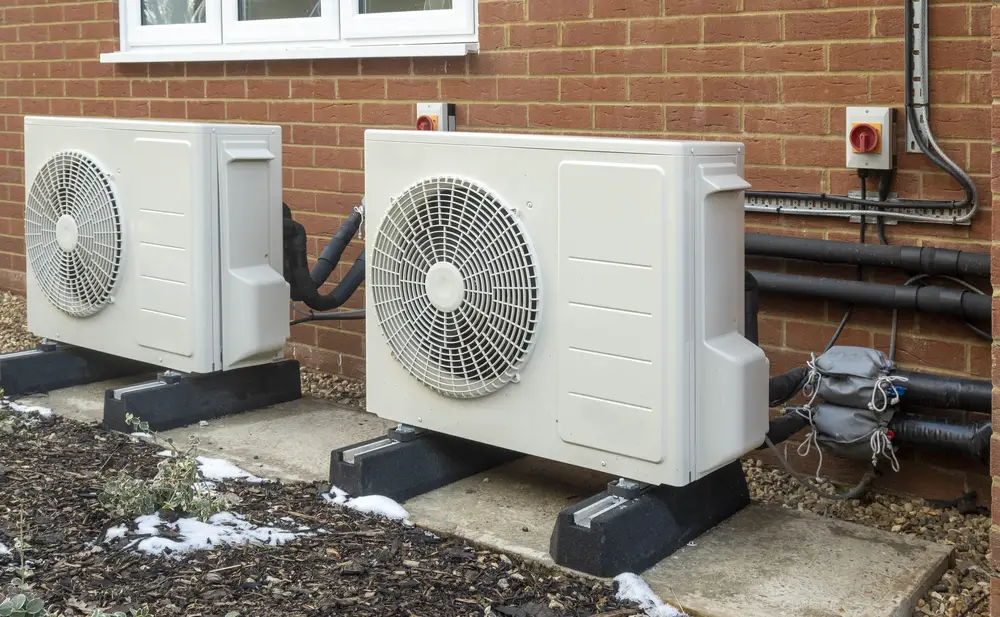
Do you need more than one smart thermostat in your home?
The way your home is zoned would determine the number of smart thermostats to be used. For a single floor home layout, a single smart thermostat would be sufficient. In a story building, for example, you may require an extra thermostat for better control since they are in different zones.
Before purchasing a smart thermostat, kindly ascertain if that particular thermostat can be used for the whole home. This is to prevent having to buy thermostats for each room in that building.
If you also happen to run more than one heat system, then you would need to have a separate smart thermostat for each of them. This is to ensure they are both well-regulated for optimal energy usage.
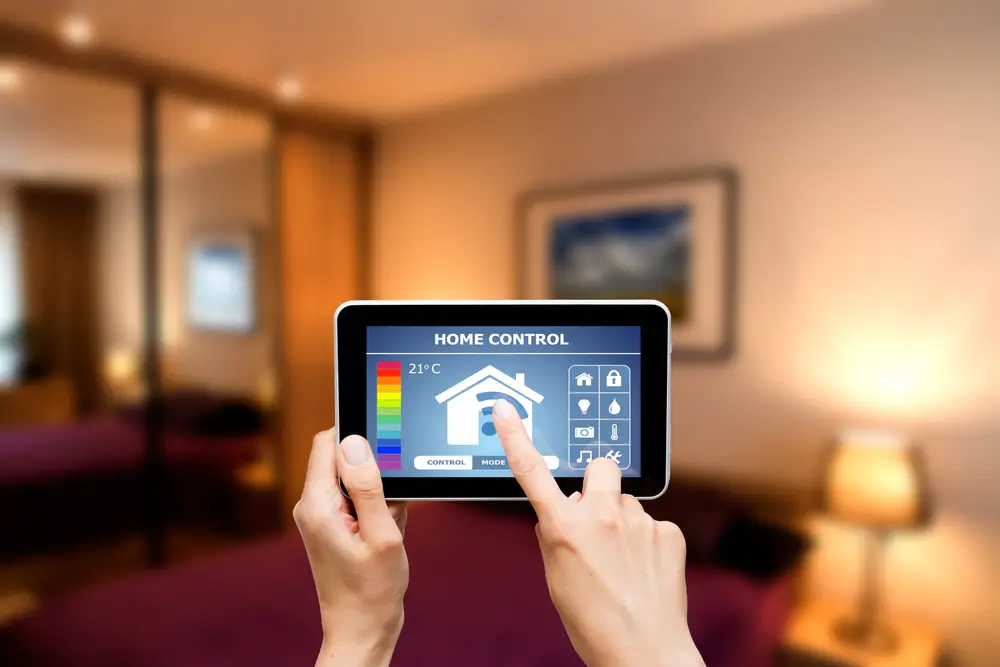
How do I install a smart thermostat?
Each type of smart thermostat has a specific way of how it would be installed. Following the manufacturer’s guidelines for the smart thermostat purchased is your best bet. If you cannot comprehend the guidelines, then call a professional.
I strongly recommend that your smart thermostat should be installed by a professional, especially if you do not have a C-wire installed.
Conclusion
Heat pumps are very much compatible with smart thermostats. The money gotten on energy savings is a testament to that. These smart thermostats vary in capabilities and features, and as such, one should ensure the thermostat they are buying is compatible with their heat pump system.
Most thermostats struggle to cover multiple zones, so it’s best to have a professional map out your home and recommend how many smart thermostats would be needed to regulate your home efficiently.
